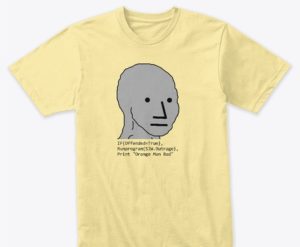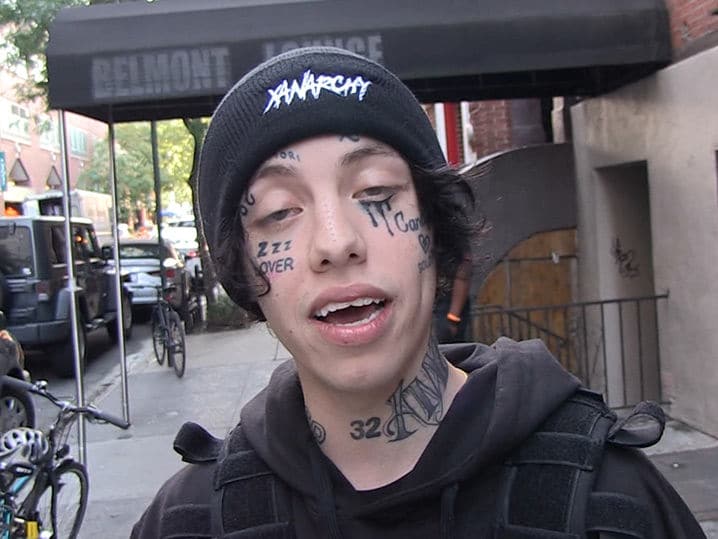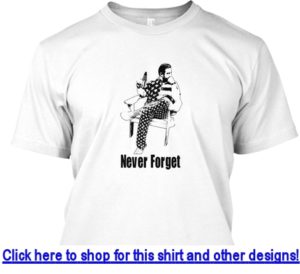
With the abuse of benzodiazepine drugs such as Xanax now starting to surpass the opioid epidemic of the last decade, it got me thinking about how much prescription drug abuse is promoted in rap and hip-hop music, specifically by the rapper named Lil Xan. But more importantly, why the trademark holders of those drugs aren’t suing for infringement when it is customary for corporate America to sue for much more minor infringements of their logos or brand names.
Lil Xan is a young rapper from California who rose to fame after releasing his music on Soundcloud. His name “Lil Xan” according to himself, is exactly what it sounds like, it’s a reference to the drug Xanax, that’s why it is spelled the same way.

Since his rise to fame, Lil Xan has said he has quit abusing Xanax and now is against using the drug, however his name is still free advertising for the popular drug which is highly abused around the world, abuse that fills the pockets of pharmaceutical companies.
So why has Upjohn, the holder of the Xanax trademark not sued for infringement? For example, Adidas recently filed suit against clothing retailer Forever 21 because they had clothes that featured 3 stripes. Adidas felt that simply having 3 stripes on clothing was enough to sue Forever 21 to make them stop.
Corporations are often quick to sue over any infringement on their brand names, however addictive drug makers seem to take the opposite approach and see it instead as free advertising.
A few years ago a clothing maker made headlines when he released sports-style jerseys but instead of a players name on the back, they read “Vicodin” , “Adderall”, and “Xanax. Although all of the makers of those drugs were notified, only the maker of Vicodin decided to sue, and even then they settled out of court without taking the case the full distance.

Do you think the makers of Coke or Pepsi would allow someone to gain nationwide attention with “Coke” or “Pepsi” branded clothing? Of course not, they would be sued immediately. But the makers of Adderall and Xanax decided to act differently. Both those drug companies were contacted about the clothing line when it launched and they released statements saying they would consider pursuing legal action. So they were aware of this drug-inspired clothing line, yet they both decided to take no real legal action, once again choosing the free advertising over protecting their brand.

So in the end, it seems the makers of addictive drugs use a different strategy from the rest of the corporate world when it comes to protecting their brand names. Instead of defending their brand names and use, they seem to have no problem with musicians promoting their drugs and even adopting their drug names and using them as professional stage names, as is the case with Lil Xan.
Now, some may argue that Lil Xan is against Xanax abuse now, so he’s not really promoting Xanax. And while currently that may be true, his rise occurred while he was still knowingly or unknowingly promoting the use of the drug through his name. And when it comes to addictive drugs, there are already plenty of stories out their against there use, but as long as they are being talked about in pop culture, their use will go up.
It’s no different than cocaine or heroin. Everybody knows there are bad stories about those drugs, but if they become increasingly popularized in pop culture, movies, and music, their use will go up, even if the main narrative about them is negative.
In Lil Xan, drug companies saw the perfect spokesperson. He was young and influential to his young fans, and best of all, it was all free for the drug makers.
So maybe with rappers constantly referring to Xanax, Percocet, Adderall, and “lean” (Promethazine), maybe they need to start asking for compensation from these drug companies for all the free advertising.
Or maybe they already are?
Note: If you enjoyed this article, please make sure to share it. Also, we are now advertising-free! To support our site and content visit our shop full of exclusive pro-Trump gear. Click here to visit our store.
You can also support our content directly via the Bitcoin address below. Any support is very much appreciated.
12ETzNSu9TAmygQZCfWMxyGedhU4rw67x9



SHARE